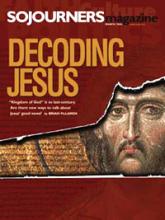In a 2005 Rolling Stone interview, U2’s Bono repeated a quote that has been the hallmark of his own career: “The music that really turns me on is either running toward God or away from God.” This is exactly the sort of music that also turns on critic Bill Friskics-Warren in his new book I’ll Take You There: Pop Music and the Urge for Transcendence—from the overtly God-ward ballads of folk musician Julie Miller to the defiant protests of Nine Inch Nails’ Trent Reznor.
An elegant writer whose turns of phrase are as illuminating as their content, Friskics-Warren’s approach to popular music has been shaped as much by his early ecstatic encounter with the Beatles as by his Vanderbilt divinity degree. In I’ll Take You There, Friskics-Warren proposes that “pop music has for decades possessed the power, much as liturgies and sacred music have for centuries, to transport the human spirit and to serve as a vehicle for the transcendence we seek.”
Friskics-Warren is not the first to point out connections between religion and popular culture. However, his observations on the subject are revelatory, especially when he excavates the albums, lyrics, and musical structure of individual artists, many of whom have been overlooked elsewhere. With a startling intuition for what even the musicians themselves may not have known, Friskics-Warren shows his subjects to be the mystics, naysayers, and prophets of today, grounded on this earth with a hunger for heaven.
Too often mainstream reviewers dichotomize the sacred and the secular. Not only does Friskics-Warren explicitly denounce such categories, he declares that the eternal is inseparable from the everyday. For him, transcendence is no clichéd, out-of-body experience. In fact, it shares more in common with the bawdy ecstasy of Teresa of Avila than the prim austerity usually associated with spiritual enlightenment.
Read the Full Article
